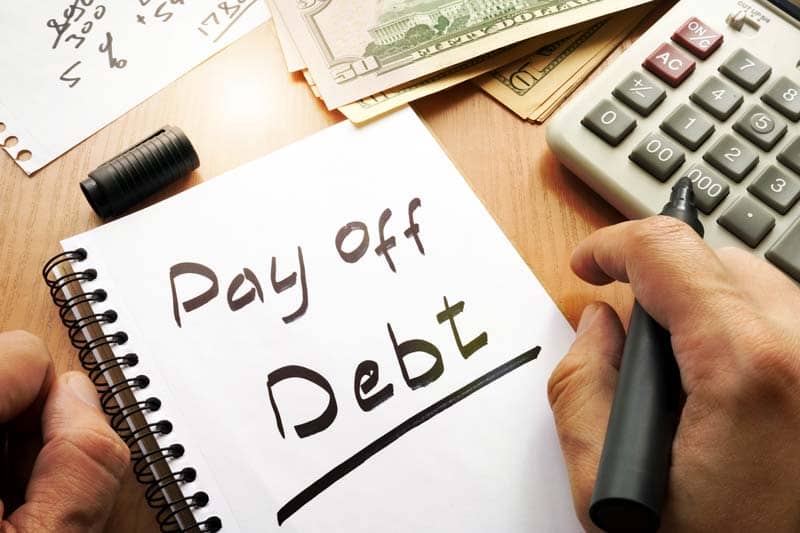
Saving Money vs. Paying Off Debt is an age-old question. There are many people in the personal finance world to turn to when you need advice on how to handle your money. Especially if your financial life includes debt that needs to be incinerated. The problem is that not all of the experts agree on how you should first go about handling the debt and still having money for life’s emergencies.
Regardless of the size of debt you have, there will always be emergencies. Some used to call it a “rainy day fund.” As Dave Ramsey says, “I’m not being negative, it is going to rain.” He is basically saying that we will all have emergencies. And since that is a given, we should prepare for them even as we are getting out of debt.
Saving Money vs. Paying Off Debt
Yes, you should concentrate on paying down your debt, but experts such as Dave Ramsey, Mary Hunt, and the folks at Crown Financial Ministries recognize that without emergency savings, you are likely to go back into debt or deeper into debt to cover the emergency. Dave Ramsey says the emergency fund acts as a cushion between you and Murphy (you know – whatever can go wrong will go wrong). But they don’t all agree on how much you should have as an emergency fund while you are getting out of debt. Here is a rundown of the amount each suggests.
3 Recommended Plans for Saving Money vs Paying off Debt
1. Dave Ramsey: $1000 Baby emergency fund (unless you make less than $20,000 per year and then it should be only $500). After establishing that you start, what he calls, the Debt Snowball. When all debt is paid off, except for the house, you save your fully-funded emergency fund of 3-6 months of living expenses.
2. Mary Hunt: $10,000 full emergency fund. This is saved while you are getting out of debt in order of the fastest payoff and setting aside other money for irregular expenses (like taxes, insurance payments – things that are not paid each month).
3. Crown Financial Ministries: There are actually 3 levels of emergency funds. You go through their money map as you get control of your finances. At the first destination, you save $1000 for emergencies. Destination 2 has you saving one month’s worth of living expenses while paying off credit card debt. And Destination 3 has you up to 3 months of living expenses while paying off the rest of your consumer debt. After that, you will be able to save for other big-ticket items.
All three of these experts and their businesses (profit and non-profit) have their basis rooted in Christian scripture and among them, you will find different approaches to everything regarding personal finance (investing, debit cards, credit cards, etc). What is important is that you find the plan among them (or another place/person you trust) that is going to work for you and your family.
Conslusion – Which way to go Saving Money vs Paying Off Debt
Personal finance is just that – personal. And no one can presume to have saving money vs paying off debt all-in-one-solution for everyone. And some of these plans are just easier to understand than others. All three agree on one thing: save for emergencies while paying off your debt. It is the most prudent thing you can do to keep Murphy from moving into your spare bedroom (another Dave saying).
